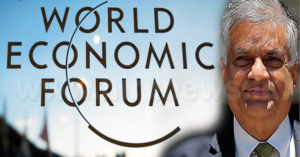Physical Address
23,24,25 & 26, 2nd Floor, Software Technology Park India, Opp: Garware Stadium,MIDC, Chikalthana, Aurangabad, Maharashtra – 431001 India
Physical Address
23,24,25 & 26, 2nd Floor, Software Technology Park India, Opp: Garware Stadium,MIDC, Chikalthana, Aurangabad, Maharashtra – 431001 India

Recently concluded, the World Economic Forum’s 54th Annual Meeting offered a critical forum for discussing the core values of accountability, transparency, and consistency that underpin trust.
More than 100 nations, leading international organisations, 1000 Forum Partners, leaders and specialists from civil society, youth representatives, social entrepreneurs, and media outlets presented at this year’s annual meeting.
What is WEF?
The World Economic Forum (WEF), established in 1971 as a not-for-profit foundation, serves as a global platform for leaders to shape agendas collaboratively. Headquartered in Geneva, Switzerland, the WEF is renowned for its impartiality and dedication to global public interest. One of its primary focuses is sustainability, as reflected in its commitment to integrating sustainable practices into event operations.
The WEF engages political, business, cultural, and other societal leaders to address global, regional, and industry challenges. Guided by a unique institutional culture based on stakeholder theory, the WEF sees itself as accountable to all segments of society. It harmonises the strengths of diverse public and private organisations, international and academic.
Spearheading Urgent Action for Climate, Nature, and Energy
As the global climate crisis escalates and environmental risks loom, the World Economic Forum’s 54th Annual Meeting in Davos 2024 emerges as a pivotal platform for decisive action. Recent events underscore the need for swift and decisive leadership to combat the climate crisis. The UN’s COP28 climate conference saw intense deliberations on phasing out fossil fuels against the backdrop of 2023 being the hottest year on record. Environmental risks, including extreme weather events and biodiversity loss, dominate global concerns, as highlighted in the Forum’s Global Risks Report 2024.
Amidst these pressing challenges, the Forum’s agenda emphasises the importance of a systemic approach to climate, nature, and energy. Leaders gather to discuss strategies for achieving a carbon-neutral and nature-positive world by 2050, ensuring inclusive access to power, food, and water while safeguarding the environment.
Transitioning to Renewable Energy
Central to these discussions is the imperative of transitioning away from fossil fuels to renewables. The International Energy Agency stresses the importance of improving energy efficiency, cutting greenhouse gas emissions, and embracing renewable energy sources. UN Secretary-General Antonio Guterres echoes this sentiment, emphasising the certainty of phasing out fossil fuels for a just and equitable transition.
Sustainability at the WEF
The WEF’s sustainability commitment is underscored by obtaining a three-year ISO 21021 certification for sustainable event management in 2018, which was renewed at the Annual Meeting 2022. The forum’s sustainability guidelines for events, exemplified in the Annual Meeting 2024 at the Davos – Klosters, Switzerland, on 15 – 19 January, outline practices for sustainable design, materials, accessibility, event materials, catering, and mobility.
The guidelines encompass several aspects of sustainability, advocating for energy-efficient structures, minimal waste, and eco-friendly materials. Participation in initiatives like the “GreenShare” project and collaboration with local providers exemplify the forum’s dedication to circularity and minimising environmental impact.
Sri Lanka’s Proactive Stance at the WEF
President Ranil Wickremesinghe’s presence at the WEF’s Annual Meeting demonstrated Sri Lanka’s commitment to climate action and sustainability. Addressing a roundtable organised by the Climate Vulnerable Forum (CVF), President Wickremesinghe urged collaboration from developing nations, the private sector, and the international finance community to support the V20-led Climate Prosperity Plans.
Sri Lanka’s Climate Prosperity Plan (CPP)
The Climate Prosperity Plan encapsulates Sri Lanka’s proactive response to climate challenges. President Wickremesinghe outlined ambitious goals for Sri Lanka to become a net energy exporter by 2025, with renewable energy surpassing 100% of domestic power needs by 2040. The CPP focuses on resource-based sectors, ensuring the security of industries and supply chains.
The President emphasised the importance of innovation in achieving development prosperity through climate action. He highlighted the Tropical Belt Initiative launched at COP28, aiming to attract private funds for the sustainability of critical climate resources in tropical regions. Sri Lanka’s commitment to robust plans and bankable projects reflects its dedication to inclusive and sustainable development.
Conclusion
As the world grapples with unprecedented environmental challenges, the World Economic Forum’s Annual Meeting in Davos 2024 emerges as a beacon of hope and action. As the World Economic Forum continues to champion sustainability, Sri Lanka’s involvement is a testament to its dedication to climate prosperity. The collaborative efforts showcased at the WEF underline the global significance of sustainable practices, providing a blueprint for a just, sustainable, and prosperous future.
With inputs from Nuwandhara Mudalige –
Comments are closed.
https://virtual-local-numbers.com/countries/1347-charlotte-virtual-phone-number.html